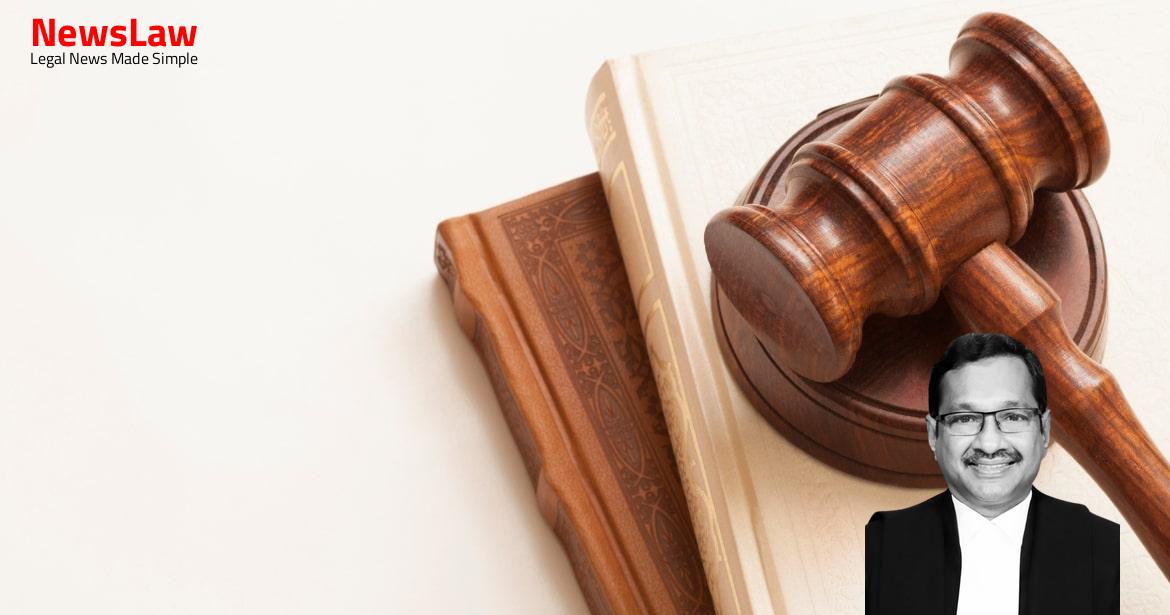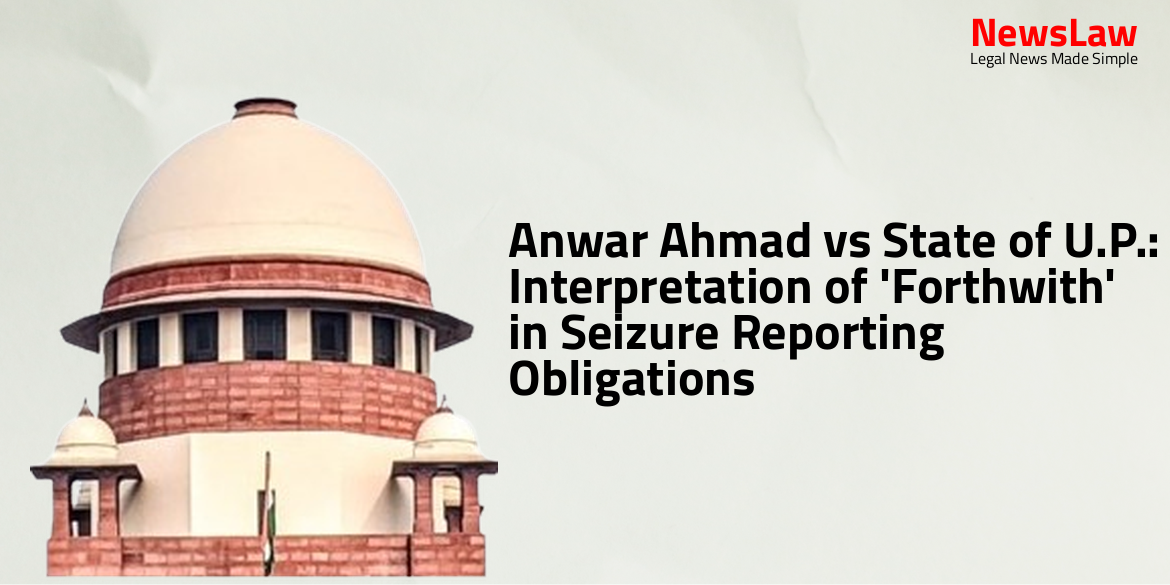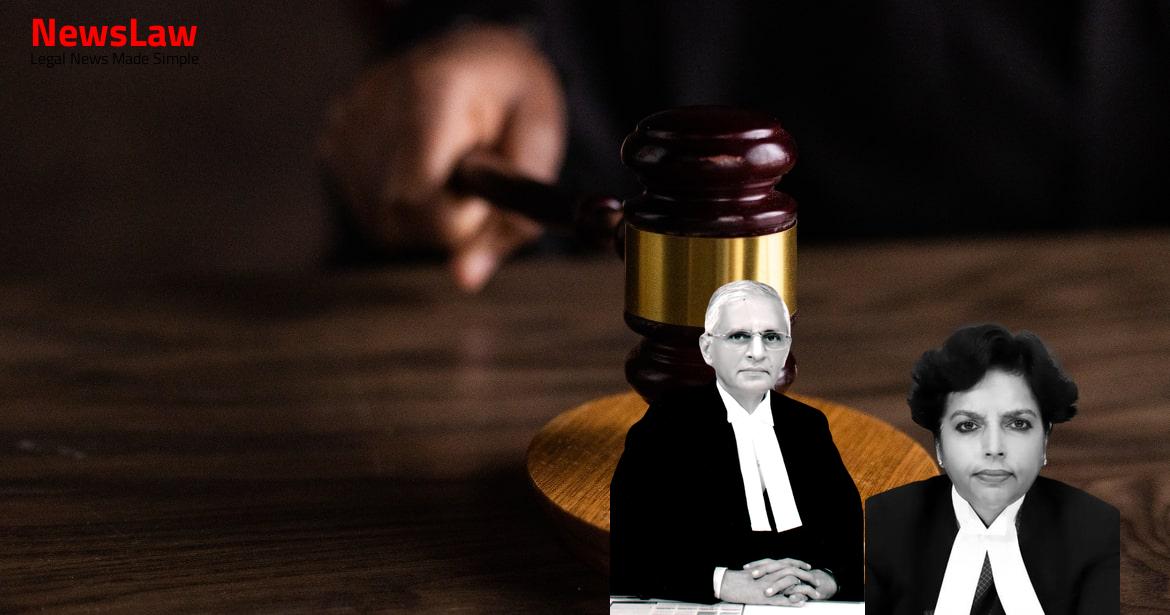In a landmark decision, the Supreme Court of India ruled on the case involving Prashant as the petitioner and Anush & Priti Agarwalla as the respondents. The judgement addresses allegations of intentional insults, humiliation, and threats, leading to a complex legal battle. This summary provides insights into the court’s decision, shedding light on the legal implications and outcomes of the case.
Facts
- Anush Agarwalla publicly abused Pradeep Kumar with derogatory terms
- Priti Agarwalla insulted Prashant with casteist remarks during IDDL competitions
- Application filed under section 156(3) citing intentional insults and humiliations by multiple individuals
- Allegations of threats and caste-based abuse led to the request for FIR registration
- High Court allowed the Criminal Appeal but did not issue direction for FIR registration
- ACP’s Action Taken Report mentioned no offense under SC/ST Act was made out
- Complaint of financial misappropriation and cheating filed by Complainant
- Application sought FIR registration only from SHO PS Fatehpur Beri
- Allegations of jealousy towards Prashant for free training and access to Olympic horses
- Absence of investigation and inquiry by SHO Fatehpur Beri on filed complaints
- Application under section 156(3) transferred to a different Metropolitan Magistrate
- Interrogation conducted in the presence of complainant’s advocate deemed proper
- Complaints of inaction on lodged information sent to authorities between specific dates
- Companion Criminal Appeal heard and disposed of separately
- Specific individuals involved in insults and threats highlighted in the application
- The High Court directed the prosecution of the then SHO of Police Station Fatehpur Beri under section 4(2)(b) of the SC & ST (Prevention of Atrocities) Act, 1989.
- The Court held that the SHO is liable to be prosecuted under section 4(2)(b) of SC & ST (Prevention of Atrocities) Act, 1989.
- The State of GNCT of Delhi and the officers filed Criminal Appeal No. 349 of 2021 against the order dated 28.04.2020 in CRL.A. 667/2018 & CRL.M.A. 11836/2018, 2660-61/2020.
Also Read: Partition of Property and Legitimacy of Children: A Legal Analysis
Issue
- A. Whether the order dated 09.07.2018 of the Metropolitan Magistrate conforms to the material on record and satisfies the mandate of section 156(3) of the CrPC?
Also Read: Preserving Chittorgarh Fort: Court’s Analysis on Mining Activities
Arguments
- A faint objection was raised by Mr. Siddharth Luthra against Mr. Kapil Modi appearing as the Counsel for Respondent No 2.
- Mr. Siddharth Luthra contended that section 156(3) requires the Magistrate to carefully consider and apply its judicious mind before issuing any directions to the jurisdictional police station.
- The contention is that the Metropolitan Magistrate is expected not to act mechanically but apply judicial discretion to the acts complained against before directing registration of FIR or closure of the complaint as no case is made out.
- If the allegations as made require calling for a report, the Magistrate is enabled by the discretion in section 156(3) to call for a report.
- The theory of the counter case by the Respondent for the cause of the administrator is seen as an attempt to defeat the complaints.
- The complaints dated 29.04.2018 and 09.05.2018 are crucial to understanding the offense alleged against the Appellants.
- The relevant material should be considered to appreciate the nature of the offense complained against the Appellants.
Analysis
- The Magistrate has the discretion to decide whether to direct registration of FIR or order a preliminary inquiry based on the complaint presented.
- The absence of witnesses present during the alleged incidents does not prevent the registration of an FIR.
- If the complaint lacks specificity regarding the alleged offences, it cannot lead to an order for FIR registration and investigation.
- A preliminary inquiry under section 156(3) of the CrPC is to determine if the information discloses a cognizable offence.
- The discretion of the Magistrate in ordering a report from the SHO should adhere to the guidelines set by the courts.
- Material circumstances cannot be suppressed or misrepresented in appeals filed.
- The Magistrate’s order for preliminary inquiry and Action Taken Report was deemed legal based on the circumstances.
- Allegations made in complaints must meet the essential ingredients of the offences alleged to warrant FIR registration and investigation.
- When the application under section 156(3) of the CrPC discloses the commission of a cognizable offence, the concerned Magistrate must direct the registration of the FIR.
- Verifying the veracity of allegations in a complaint is important to prevent misuse of applications under section 156(3) as a tool for harassment.
- Applications under section 156(3) should be supported by an affidavit sworn by the applicant.
- Magistrates are advised to verify the truth and veracity of the allegations in appropriate cases.
- A place within public view is not the same as a public place, which is typically owned or leased by governmental bodies.
- The SC/ST Act aims to protect vulnerable sections of society, and FIR registration should be based on satisfying the requirements of the alleged offences under the Act.
- Judicial Magistrates have discretion to direct a preliminary inquiry before ordering FIR registration if no cognizable offence is made out.
- The constitutional goal of equality can be achieved by protecting the rights of Scheduled Castes and Scheduled Tribes.
- Affidavits can make applicants more responsible in filing complaints.
- Directions regarding the handling of Section 156(3) applications have been modified in subsequent cases.
- Interpretation of section 3(1)(x) of the Act requires ‘public view’ to include independent and impartial persons not associated with the parties.
- The offense of intentional insult and intimidation with intent to humiliate a person of Scheduled Caste or Scheduled Tribe within public view requires the element of ‘intention’.
- Sections 3(1)(r) and 3(1)(s) of the Act of 1989 outline punishments for offenses of atrocities against Scheduled Castes and Scheduled Tribes.
- The structured application of the sections emphasizes intentional insult or abuse, with the humiliation taking place in any public view area.
- The expression ‘in any place within public view’ is crucial in determining the elements of the offense.
- The observations of the High Court of Delhi directing the registration of an FIR are untenable.
- The reasons recorded in the preceding paragraphs support the interference in the appeal.
- Point C is answered in favor of the Appellants, indicating the unsustainability of the impugned judgment.
Decision
- The impugned order dated 02.08.2018 passed by the Special Judge is set aside.
- The number of cases filed and acrimonious allegations between parties raises doubts on the ability of someone to calm and guide a horse in its enthusiasm.
- The parties are left to pursue their passion and path.
- The criminal appeal is allowed and the order of the Metropolitan Magistrate dated 09.07.2018 is upheld.
- The application under Section 156(3) Cr.P.C. read with Section 200 Cr.P.C. is dismissed.
Case Title: PRITI AGARWALLA Vs. THE STATE OF GNCT OF DELHI (2024 INSC 437)
Case Number: Crl.A. No.-000348-000348 – 2021



